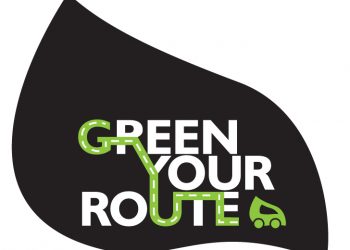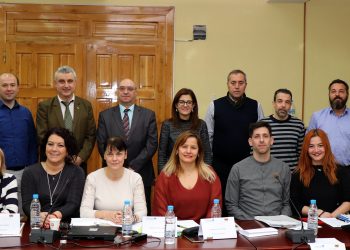The WPs and Actions foreseen are as follows:
WP1 - Management and CoordinationWPs and Actions
WP1 “Management and Coordination” concerns the activities that must be set up at the beginning and during the project’s implementation in order to define and implement the organizational structure, decision making and quality assurance processes that partners must apply in coordination with the LP. It will also define financial monitoring procedure and the establishment of expert groups. The projects’ scientific and financial progress according to planed timetable and the evaluation of completed actions and scheduling of forthcoming ones will be monitored through partnership meetings every four months.
WP2 - Information and PublicityWPs and actions
WP2 “Information and Publicity” includes 1) organization of two Conferences for the dissemination of the project’s outcomes, 2) development of a communication plan towards stakeholders and the public and production of printed and electronic information material (brochures, leaflets, CD’s etc), 3) conduction of publicity and promotion actions in Mass Media (TV, Radio and Newspaper), and 4) development and maintenance of a website.
WP3 - Institutional capacity analysis & data collectionWPs and actions
WP3 “Institutional capacity analysis & data collection” involves the conduction of studies for the analysis of the current legal and institutional framework and present state practices on the fields of 1) irrigational water management, 2) codes of good agricultural practices (CGAP) and 3) soil erosion risk management. It also includes the development of guidelines and best practice methodologies on the use of provided tools and services for end users/stakeholders, and the delivery of protocols for data collection, debugging, processing and harmonization. Lastly, data collection actions will take place required for both the application of pilot operations and the conduction of large-scale strategic studies.
WP4 - Digital services development & delivery for enhancement of institutional capacityWPs and actions
WP4 “Digital services development & delivery for enhancement of institutional capacity” concerns the purchase of appropriate equipment and the customization of existing digital tools/services on the fields of 1) precise irrigation, 2) CGAP and 3) soil erosion risk management. This WP also requires the expansion of the existing system of services (networking and geodatabase) established within iBEC and the subsequent delivery of the services/tools on all the aforementioned fields.
WP5 - Evaluation of pilot applications and training of public administrationWPs and actions
WP5 “Evaluation of pilot applications and training of public administration” includes the actions for the evaluation of the system’s operation in terms of performance and efficiency as well as the assessment of the system’s impact on the capacity of the end users (public administration) on a technical, economic and environmental level. The WP also includes the conduction of large-scale strategic studies concerning the feasibility of the application of precise irrigation (within Greece and Albania) and guidelines on management of agricultural resources (within Cyprus). The WP will conclude with the conduction of training seminars in five countries targeting public administration staff and focusing on the use of the digital tools/services developed during the project, on water and soil resource management, good agricultural practices and related legal framework implementation.
DeliverablesThe list of submited public deliverables:
D1.1.2_Definition of Quality Assurance Processes
D1.1.3_Project Management Handbook
D2.1.2_Communication Management Plan
D3.1.1_Legal and institutional framework analysis
D3.1.3_Methodological guidelines & data collection protocols
D4.1.2_Services and Digital Tools Development and Customization
D4.1.3_ Establishment of upgraded central system and inter-related subsystems
D4.1.4_Delivery of Services (Pilot Operation)
D4.1.4_Delivery of Services (Pilot Operation)_External
D5.1.1_ Operational evaluation of central system and inter…
D5.1.2_Τεχνοοικονομική και περιβαλλοντική αξιολόγηση (κεφαλαιοποίηση και αειφορία)
The expected outputs of the project are:
- Legal and institutional framework analysis of five countries on the fields of a) irrigational water management (GR and AL), b) application of codes of good agricultural practices (CY and Rep. of North Macedonia), and c) soil erosion risk assessment and management (BG).
- Present state analysis (existing practices) on the above fields and corresponding countries and public administration requirements analysis for monitoring related environmental targets.
- Customized digital tools and services for the application of: a) precise irrigation (GR & AL), b) evaluation of codes of good agricultural practices (CY and Rep. of North Macedonia), and c) large-scale soil erosion risk assessment (BG).
- Central system within iBEC for delivery of services/tools and scientific/technical support to public administration personnel of all 5 countries.
- Training seminars and workshops accesible to all (for 100 participants in total) targeting the personnel of public authorities in five countries focusing on the use of the digital tools/services, water and soil resource management, good agricultural practices and related legal framework implementation.
- Guidelines and best practice methodologies on the use of provided open source tools and services for end users/stakeholders, and protocols for data collection, debugging, processing and harmonization.
- Scientific equipment supply, data collection of environmental data and pilot application of aforementioned tools and services.
- Evaluation of project’s outcomes in relation to the institutional capacity of public administration in all five countries.
- Large-scale feasibility studies for the application of precise irrigation (Greece – Albania) and strategic guidelines on agricultural resources management (Cyprus).
- Publicity and mass media actions (website, printed and electronic material with the project’s outcomes, Mass media promotional actions, conferences).
The tangible, direct and immediate results of the project that are linked to the corresponding result indicators under the chosen specific objective are related to the improvement of the capacity of the public administration’s staff in environmental legislation content and delivery.
Within this context, the most direct, measurable foreseen results are linked to the following:
- The number of training seminars (open to all) – four (4), in corresponding countries.
- The maximum number of participants (public servants) – 100.
- The number of customized advanced digital open source tools and services for use by public bodies – three (3): i) irrigational water management, ii) evaluation of codes of good agricultural practices and iii) large-scale soil erosion risk assessment.
Other results of the project whose effect cannot be quantified easily at this stage can be considered the following:
- The improved protection of the natural resources (soil and water) within the project’s territories (especially the pilot operation areas).
- The enhanced equipment and technical capacity of the participating bodies.
- The acquisition of comparable, continuous and reliable environmental quality datasets.
- The increased public awareness, diffusion of knowledge on environmental issues and regulatory commitments.
- The increased bondage among participating bodies/countries.
Allocation of responsibilities to partners has been based on the advantages of each one in order to use their resources in the most effective way.
The project is up to a large extent based on the connection between the LP who acts as the service provider/know-how disseminator and the rest of the partners all representing public bodies/end users of the provided services.
- WP1: All partners will be involved in project management-financial monitoring-technical meetings while the LP will undertake the overall coordination, the quality assurance, and the establishment of PMC and SAB.
- WP2: All countries will contribute to publicity actions within their respective territories (LP, P2, P4, P5, P7, P8). LP and P5 will organize one Conference each.
- WP3: Legal framework, present state and end user requirements analyses will be carried out in all countries (LP, P3, P4, P5, P7, P8) in order for LP to customize the services during WP4. LP will provide guidelines and protocols for services to all partners while data will be collected by P2, P4, P5.
- WP4: LP, P4, P6, P7 will purchase essential equipment, while LP will customize services for all partners, establish the required database and networking system and provide support during delivery of services (pilot operation) to partners P6, P7, P8.
- WP5: LP, P4, P5, P6, P7 will carry out the project’s evaluation actions, P3, P5 and P8 large-scale strategic studies, while LP, P2, P4, P6, and P7 the project’s training seminars.
The project exhibits a high level of transnational cooperation. The main co-operational channel among them will be brought forward by LP which aims to act as a transnational hub for the delivery of services, tools and know-how towards the rest of the partners and in close collaboration with them during all implementation phases (planning, analysis, customization, delivery of services – pilot operation, training and education).
LP’s role as a common reference point and the fact that the partnership consists of bodies with key roles on a policy level, in their respective territories, shapes a transnational partnership/consortium with the potential to bring changes on a wider-than-national level, through the specification and development of common/harmonized definitions, methodologies and targets in the currently highly unspecified – in regulatory terms – environmental fields tackled by the project.


